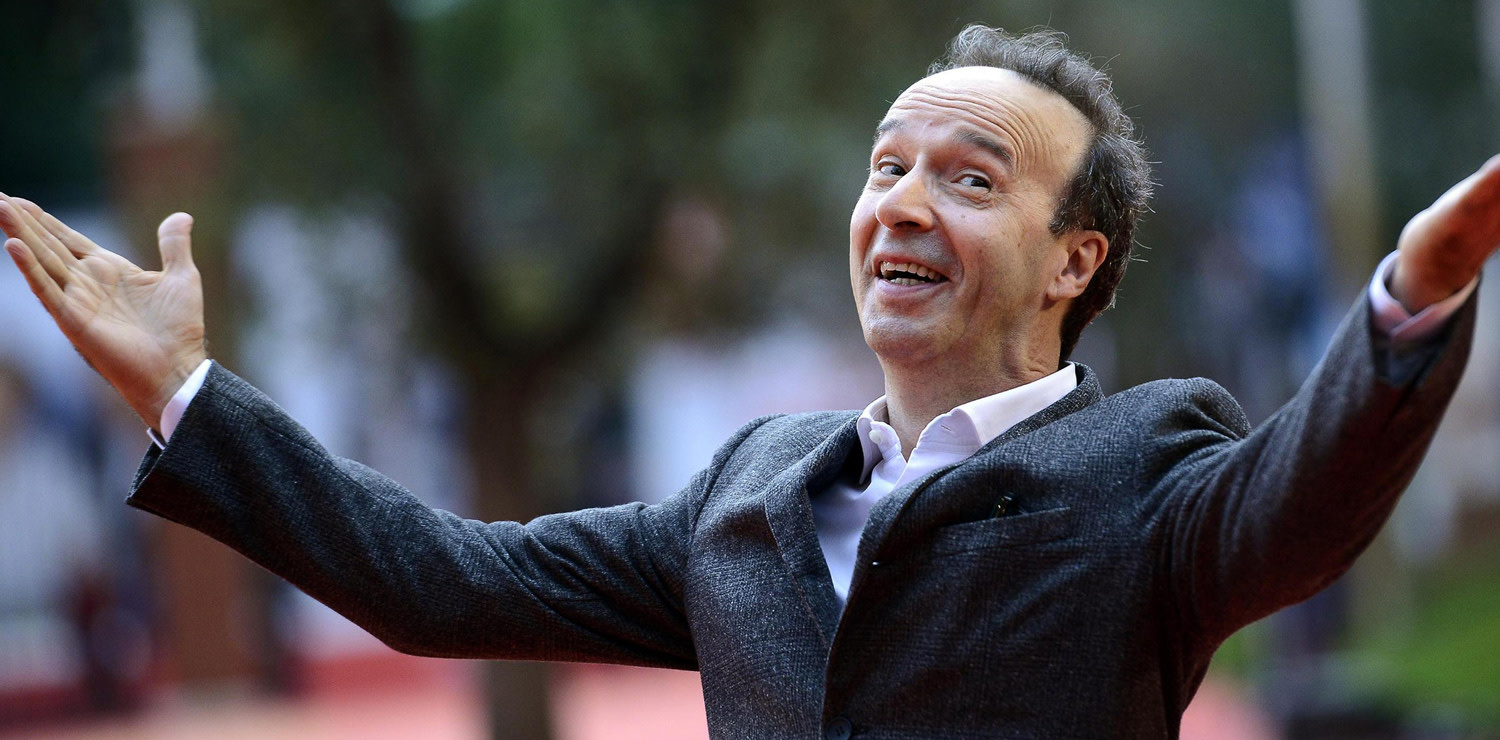Happy Birthday Roberto Benigni!
On the occasion of the great actor and director's 70th birthday, we take you on a discovery of his Vergaio
Actor, director, screenwriter, comedian, Roberto Benigni - born as a rebel artist - has enjoyed success first in the theatre, then on TV and in the cinema with films that have captivated young and old alike. In 2021, he also won the Golden Lion for Lifetime Achievement at the 78th Venice International Film Festival.
Today he celebrates an important milestone, that of his 70th birthday, which we decided to celebrate in his birthplace in Prato, more precisely in Vergaio, where he shot many cult scenes of two iconic films Berlinguer ti voglio bene, and Tuttobenigni. We set off!
We get out of the car annoyed by now at the sight of the fly. Vergaio is four streets and a church that over time have become a village, in 1840 'Vergaja' had 363 inhabitants, in the post-war period it participated in Italy's economic boom, with new buildings and an exponential increase in population, even in recent years housing has continued to increase at a dizzying pace.
It is the 'progress of the muramento' as Giuseppe Nenciarini of the food of the same name calls it, a definition that would have made Leopardi, Nietsche and Heidegger happy together. The story is one of fields that, in the post-war period, give way to houses and looms, peasants who, accustomed to fatigue, are the ideal workers to spend twelve hours at the fraying machines at the washing, the processes necessary to prepare the bales to be sent to the weaving mills, during which the air you breathe is mixed with acids, dust and wool.
There is always some peasant, Etruscan, Longobard, or Pratese, who stumbles upon a loom shuttle; there is always Castracani or his soldiers burning and plundering. Even in Vergaio, as Alfio Bonetti writes in Mille anni di storia di una chiesa della piana pratese. "San Martino a Vergaio', recalling the ancient Romanesque church that was destroyed during one of Castracani's many raids.
Don Alfio Bonetti was the town's parish priest from 1945 until a few years ago, and his name recurs on the lips of everyone we talk to, as often as Benigni's. They speak of a man of culture, but also of doing, always present and a point of reference for the village. Of course he is away at the moment and, to my great regret, we cannot meet him. Again the buzzing of the fly banging against the glass appears in my head.
Vergaio's time is spent between the mcl club and the casa del popolo, indifferent to political and religious beliefs, discussing and organising for the chocolate and chestnut festival that is held on the second Sunday in October. Until 2000, there was the grape festival, which between tug-of-war, five-a-side football tournament, cart and donkey races, lasted almost a month. Now it also has its own Proloco, no longer dependent on Galciana.
It is a quiet town made up of quiet people, says Francesco Di Fiore, a vegetable grower, but above all a boxer who won the Italian Superwelter title. I moved here when I was a kid and I did a lot of raids around Vergaio, but it's better not to go into details, let's just say that we were a bit of a bright lad who had fun and, in those days, every scuffle ended with a handshake. Francesco's gaze is clear, he smiles and, when a customer arrives, greets her with a "what can I give you ma'am?" as he bags yellow melons, wouldn't you think that with those hands he has left the everlasting mark of his passage on the faces of many opponents.
We drag ourselves along the street of Vergaio to the square of the church of San Martino where, to our amazement as unbelieving atheists, an almost angelic figure appears before us. We are not in front of a tabernacle, but at the butcher's shop window and this heavenly madonna, equipped with a cleaver, is boning a steak. She is Sue Ellen Mannori, who has decided to stay and work in the family business, the butcher's shop that exports mortadella from Prato all over Italy. Sue Ellen takes care of the commercial side of the business, but watching her process the meat is something fascinating.
One cannot miss a visit to the warehouse of the historical Masi brothers, who became a cult place in the 1990s for vintage enthusiasts. Here in 2008, among bales of rags reaching to the ceiling, Stracci, the second chapter of the trilogy of fatigue written by Tommaso Santi, was performed.
This theatrical performance, in this place, I think was one of the first elaborations of Prato's mourning, while still today there are those who cling tightly to the textile corpse as they lower it into the grave of the good old days, all that remains for me is that veil of melancholy that descended from one year to the next on the gaze first of my grandfather and then of my father.









